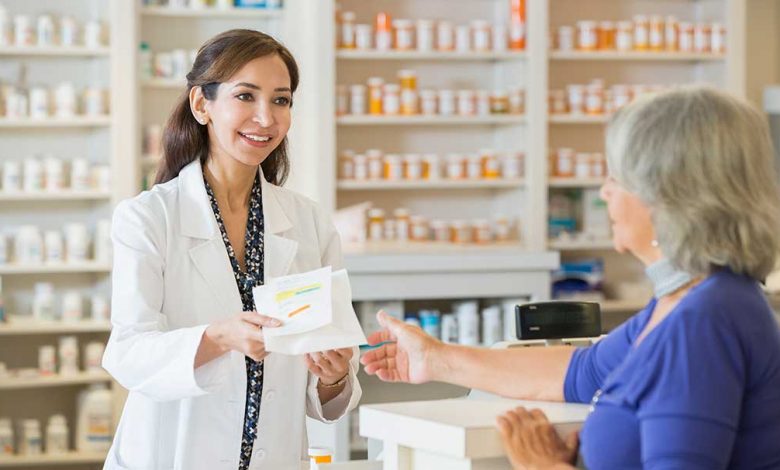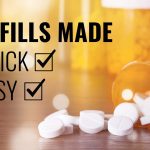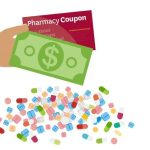Can Someone Else Pick Up My Xanax Prescription?

What is Xanax?
Xanax is a brand of Alprazolam, a short-acting tranquilizer of the triazolobenzodiazepine class, which are benzodiazepines fused with a triazole ring. Generic Xanax is also available as the brand-name medications Xanax and Xanax XR. A generic drug is an exact copy of the active drug in a brand-name medication. Generic blue, green, and yellow Xanax pills are considered to be just as safe and effective as the original drug but tend to cost less.
Xanax works by decreasing abnormal excitement in the brain. The Food and Drug Administration (FDA) approved it in October 1981. Benzodiazepines act on the brain and central nervous system (CNS) to produce a calming effect. Xanax is a federally controlled substance (C-IV) because it can be abused or lead to dependence. Keep this medicine in a safe place to prevent misuse and abuse. Selling or giving away Xanax may harm others, and is against the law. Tell your healthcare provider if you have abused or been dependent on alcohol, prescription medicines, or street drugs.
What does Xanax do?
Xanax slows down the movement of brain chemicals that may have become unbalanced, resulting in a reduction in nervous tension and anxiety. Xanax works by boosting the effects of a natural chemical called gamma-aminobutyric acid, which is made in the brain.
Xanax is used to treat anxiety disorders and anxiety caused by depression. Xanax is also used to treat panic disorders with or without a fear of places and situations that might cause panic, helplessness, or embarrassment (agoraphobia).
Xanax prescriptions and abuse
Headlines in recent years suggest that the use of Xanax is rising. An article in the Journal of Addiction Medicine stated that Xanax is one of the most widely-prescribed drugs for anxiety and panic disorders. In 2013, 50 million prescriptions were written for Xanax, an increase from 38 million prescriptions in 2006. Prescription rates for Xanax have been at a steady increase of 9 percent rate since 2008.
The high number of legal prescriptions for Xanax being issued has increased the availability of this drug on the street. According to figures from law enforcement agencies, alprazolam is one of the top 3 prescription drugs being diverted to the black market. The Drug Enforcement Agency (DEA) has identified “doctor shopping” and prescription forging as major sources of alprazolam on the black market.

Can Someone Else Pick Up My Xanax Prescription?
Yes, according to HHS, a U.S. pharmacist may use his or her professional judgment and experience with common practice to make reasonable inferences of the patient’s best interest in allowing a person, other than the patient, to pick up a prescription medication like Xanax. For example, the fact that a relative or friend arrives at a pharmacy and asks to pick up a Xanax prescription for an individual effectively verifies that he or she is involved in the individual’s care, and the HIPAA Privacy Rule allows the pharmacist to give the filled prescription to the relative or friend. The individual does not need to provide the pharmacist with the names of such persons in advance.
In the U.K, NHS rules permit friends or relatives to pick up a Xanax prescription on behalf of someone else whether the Xanax prescription is electronic or a paper prescription. The doctors in most cases are not legally required to check your identity, but some may ask for proof of identity to prevent the wrong prescription from being given out.
However, since Xanax is a controlled drug, different states in the U.S. have different laws regarding the pickup of controlled substances. The ability for someone else to pick up your Xanax prescription may depend on various factors, including local laws, pharmacy policies, and specific circumstances. Here are some general considerations:
1. Legal Requirements: In many jurisdictions, prescription medications, including Xanax, are regulated substances, and the pickup of such medications may require compliance with legal requirements. This typically involves the person picking up the prescription being authorized by the patient or having power of attorney for medical decision-making. It’s important to familiarize yourself with the laws and regulations in your specific jurisdiction.
2. Pharmacy Policies: Pharmacies may have their own policies regarding prescription pickups. Some pharmacies may allow a designated individual, such as a family member or caregiver, to pick up a prescription on behalf of the patient. However, they may require proper identification and authorization from the patient, such as a signed note or a specific form provided by the pharmacy.
3. Communication with the Pharmacy: It is advisable to contact the pharmacy where you plan to pick up your prescription and inquire about their specific policies and requirements. They can provide you with accurate information and guidance on the process for someone else picking up your Xanax prescription.
4. Privacy and HIPAA: Healthcare providers and pharmacies are bound by patient privacy laws, such as the Health Insurance Portability and Accountability Act (HIPAA) in the United States. These laws protect the confidentiality of your medical information. If you wish to allow someone else to pick up your prescription, you may need to provide written consent or make arrangements with your healthcare provider and the pharmacy to ensure the appropriate handling of your information.
It’s important to note that the policies and regulations surrounding prescription pickups can vary. Consulting your healthcare provider and the pharmacy directly is the best way to obtain accurate information and ensure compliance with all relevant requirements.





